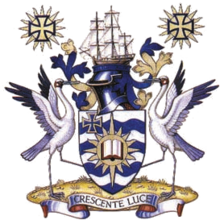

Current Circumstances James Cook University was established to conduct teaching and research on areas of importance to North Queensland and the tropics world-wide. Our focus is on producing graduates who have the expertise and intellectual curiosity to make a difference in their profession and their communities and conducting the research needed to meet the challenges facing the tropical world. We are also committed to producing the professional workforce for under-served communities and providing access and opportunity to those who may not have previously been able to access higher education. Started in 1960 in Townsville as a University College of The University of Queensland and established as a university in 1970, James Cook University has since expanded into a multi-campus institution with the largest campuses located in Townsville and Cairns. Our footprint now extends beyond northern Queensland to include our Singapore Campus which combines research and teaching and demonstrates our commitment to the Asian region and internationalisation, particularly in the tropics. JCU also has a presence in Brisbane by means of a campus operated by Russo Higher Education. At JCU staff and students benefit from our tropical location to conduct at or above world standard research in the following areas: environmental science and management; fisheries sciences; geochemistry, geology, evolutionary biology, plant biology, zoology; tourism; inorganic chemistry, oceanography; physical geography and environmental geoscience; biochemistry and cell biology; genetics; materials engineering; immunology; neurosciences; nursing; specialist studies in education; anthropology; human geography; linguistics; and historical studies. The University is rated in the top 4% of universities in the world in the Academic Ranking of World Universities (Also known as the Shanghai Jiao Tong World Rankings), an achievement equaled/surpassed by only two other Queensland Universities. We recognise that the University is judged not only on its quality but equally on its relevance and impact beyond academia. Accordingly we commit ourselves to research of excellence and high impact, particularly on issues of critical importance to the world’s tropics. We recognise our obligation to engage with industry and government, commercialise our research findings and achieve critical mass through productive research partnerships with other research organisations. JCU is a site and catalyst for innovation and understanding. Our teaching is high-quality, innovative and engaging to students. Our approach is characterised by personal contact with students and we provide alternate modes of delivery responsive to their needs, in a contemporary learning environment, ensuring contact with teachers and other students. JCU is a contemporary and dynamic institution and a major driver of economic growth and social change in northern Queensland, as well as having international impact and reach. JCU recognises its “power of place” and engages with all its communities and industry to promote a sustainable region that is socially inclusive. As northern Queensland is a site for a first and second roll-out of the National Broadband network, JCU will work with the Government to maximize the opportunities that the NBN presents to reduce the disadvantage of distance and provide opportunities for students to access education and resources. Our Strategic Intent - Creating a brighter future for life in the tropics world-wide through graduates and discoveries that make a difference. Comprehensive, but focused We are a comprehensive University. Our teaching and research focuses on four themes: Tropical Ecosystems and Environment Industries and Economies in the Tropics Peoples and Societies in the Tropics Tropical Health, Medicine and Biosecurity. Place is powerful The Tropics is our place: a vast geographic area that Aristotle called the Torrid Zone. Our three tropical campuses are complemented and extended by regional and remote study centres and research stations. Students are at the heart of our University and we inspire them to make a difference in their fields of endeavour and in their communities by: Delivering high quality teaching and learning programs in a research-rich environment, and Fostering their professional expertise and intellectual curiosity. Our world-class research generates new knowledge and understanding to meet the challenges facing the peoples of the tropics. Diversity and reconciliation Embracing the diversity of the communities we serve in two countries, we work with them to create opportunities and enduring benefits for our region and beyond. Acknowledging the First Nation peoples of the world, their rich cultures and their knowledge of the natural environment, we pay particular respect to Aboriginal and Torres Strait Islander peoples, the traditional custodians of the lands and waters of Australia. We are pledged to achieve genuine and sustainable reconciliation between the Aboriginal and Torres Strait Islander peoples and the wider community. Sustainability Committed to the principles of sustainability, we will ensure that our actions today do not limit the range of social, cultural, environmental and economic options open to future generations. Values and beliefs Our actions are underpinned by our values and beliefs: Values Excellence Authenticity Integrity Sustainability Mutual Respect Discovery Beliefs We recognise that knowledge has the power to change lives We ignite and support a passion for learning in our community We are enriched by and celebrate our communities’ diversity We understand that a sustainable environment is central to our lives and our work We uphold our commitments. An international University as reflected in our people, our places, and our research, we take quiet pride in being recognised as a leading tertiary institution in Australia, our Asia-Pacific region and among the universities of the world. One university • Two countries •Three tropical campuses Cairns • Singapore • Townsville
| Subject | Rank |
|---|
| Subject | Rank |
|---|---|
Ecology | 51-75 |
Mining & Mineral Engineering | 76-100 |
Hospitality & Tourism Management | 101-150 |
Geography | 151-200 |
Atmospheric Science | 151-200 |
Earth Sciences | 201-300 |
Agricultural Sciences | 201-300 |
Nursing | 201-300 |